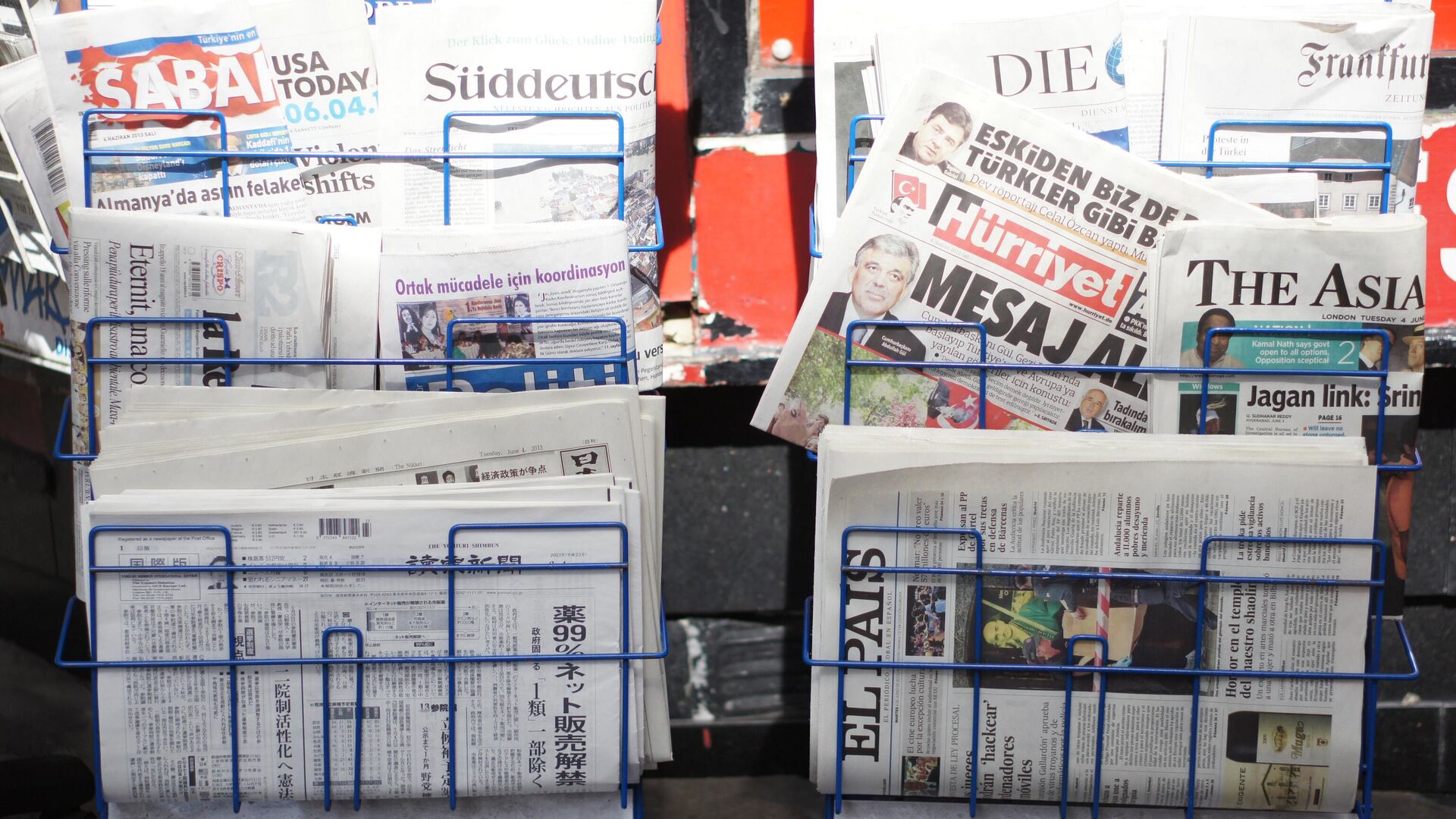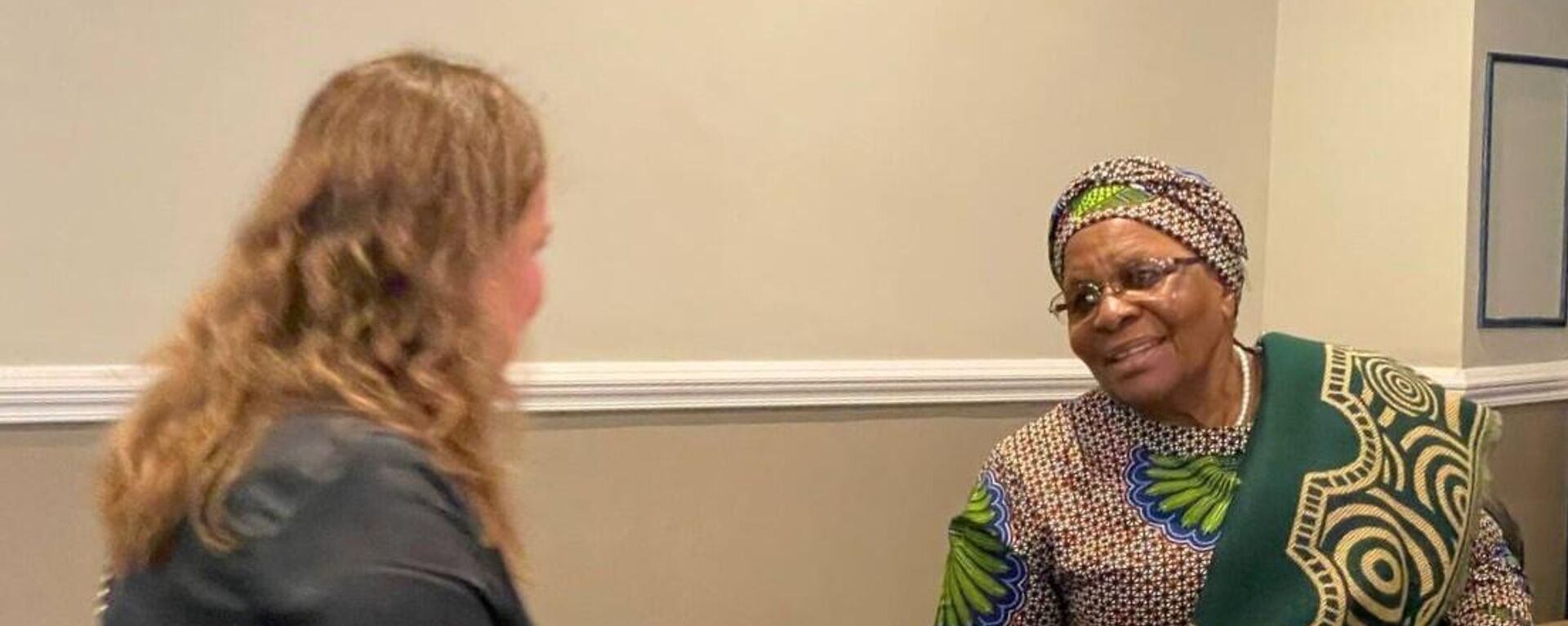https://en.sputniknews.africa/20241011/study-reveals-42-billion-loss-to-african-economies-due-to-negative-media-coverage-1068646251.html
Study Reveals $4.2 Billion Loss to African Economies Due to Negative Media Coverage
Study Reveals $4.2 Billion Loss to African Economies Due to Negative Media Coverage
Sputnik Africa
Founded in 2003, Africa Practice is an advisory firm that assists businesses, governments, and NGOs in navigating African political and business landscapes... 11.10.2024, Sputnik Africa
2024-10-11T19:03+0200
2024-10-11T19:03+0200
2024-10-11T19:03+0200
media
africa
sanctions
anti-russian sanctions
russia
freedom of press
racism
west
russia today (rt)
rossiya segodnya
https://cdn1.img.sputniknews.africa/img/07e8/0a/0b/1068646334_0:159:3077:1890_1920x0_80_0_0_cf2d101c4017fac7f34dfeffb89f9cc4.jpg
A new study titled "The Cost of Media Stereotypes to Africa," launched by Africa Practice and Africa No Filter, has found that negative Western media portrayals of African affairs are costing the continent’s economies an estimated $4.2 billion annually.The study highlighted how biased reporting, especially during elections in Kenya, Nigeria, South Africa, and Egypt, damages investor confidence and hampers growth.The report points out that African elections often receive disproportionate coverage of violence and fraud, while non-African countries facing similar risks get more favorable treatment. This skewed portrayal is estimated to reduce Africa's GDP by 0.14% annually, with the lost funds potentially educating 12 million children and providing immunization to over 73 million.The study also noted that fairer media coverage could boost Africa's credit ratings, reduce borrowing rates, and enhance investor confidence, further promoting growth in key sectors like tourism, manufacturing, and financial services. Marcus Courage, CEO of Africa Practice, reportedly emphasized the need to challenge Western stereotypes rooted in racism and hegemonic views.Moky Makura, executive director of Africa No Filter, urged African governments to amplify positive narratives, highlighting sustained growth, expanding democracy, and innovation, media reported. These steps, she added, would help reshape global perceptions and support Africa’s development trajectory.Numerous African and international figures, such as Kgosientsho Ramokgopa, South Africa's Minister of Energy and Electricity, and Netumbo Nandi-Ndaitwah, Vice President of Namibia, have expressed concern that Western governments, by imposing sanctions and restrictions on Russian media outlets like RT and Rossiya Segodnya, effectively limit public access to diverse perspectives, leaving audiences with one-sided narratives.
https://en.sputniknews.africa/20241009/namibias-vice-president-advocates-for-african-media-sovereignty-and-economic-development-1068602755.html
africa
russia
west
Sputnik Africa
feedback@sputniknews.com
+74956456601
MIA „Rossiya Segodnya“
2024
Christina Glazkova
https://cdn1.img.sputniknews.africa/img/07e7/0b/07/1063380906_0:0:673:674_100x100_80_0_0_79628b4d0cd9f29291a57aa13bbf9e7a.jpg
Christina Glazkova
https://cdn1.img.sputniknews.africa/img/07e7/0b/07/1063380906_0:0:673:674_100x100_80_0_0_79628b4d0cd9f29291a57aa13bbf9e7a.jpg
News
en_EN
Sputnik Africa
feedback@sputniknews.com
+74956456601
MIA „Rossiya Segodnya“
Sputnik Africa
feedback@sputniknews.com
+74956456601
MIA „Rossiya Segodnya“
Christina Glazkova
https://cdn1.img.sputniknews.africa/img/07e7/0b/07/1063380906_0:0:673:674_100x100_80_0_0_79628b4d0cd9f29291a57aa13bbf9e7a.jpg
media, africa, sanctions, anti-russian sanctions, russia, freedom of press, racism, west, russia today (rt), rossiya segodnya
media, africa, sanctions, anti-russian sanctions, russia, freedom of press, racism, west, russia today (rt), rossiya segodnya
Study Reveals $4.2 Billion Loss to African Economies Due to Negative Media Coverage
Christina Glazkova
Writer / Editor
Founded in 2003, Africa Practice is an advisory firm that assists businesses, governments, and NGOs in navigating African political and business landscapes through strategic communication and policy services. Africa No Filter seeks to change stereotypical narratives by supporting storytellers and creatives across the continent.
A
new study titled "The Cost of Media Stereotypes to Africa," launched by Africa Practice and Africa No Filter, has found that negative Western media portrayals of African affairs are costing the continent’s economies an estimated
$4.2 billion annually.The study highlighted how biased reporting, especially during elections in Kenya, Nigeria, South Africa, and
Egypt, damages investor confidence and hampers growth.
The report points out that African elections often receive disproportionate coverage of violence and fraud, while non-African countries facing similar risks get more favorable treatment. This skewed portrayal is estimated to
reduce Africa's GDP by 0.14% annually, with the
lost funds potentially educating 12 million children and providing immunization to over 73 million.The study also noted that fairer media coverage could boost
Africa's credit ratings, reduce borrowing rates, and enhance investor confidence, further promoting growth in key sectors like tourism, manufacturing, and financial services. Marcus Courage, CEO of
Africa Practice, reportedly emphasized the need to challenge Western stereotypes rooted in
racism and hegemonic views.Moky Makura, executive director of Africa No Filter, urged African governments to amplify positive narratives, highlighting sustained growth, expanding democracy, and innovation, media reported. These steps, she added, would help reshape global perceptions and support Africa’s development trajectory.
Numerous African and international figures, such as
Kgosientsho Ramokgopa, South Africa's Minister of Energy and Electricity, and Netumbo Nandi-Ndaitwah, Vice President of Namibia, have expressed concern that Western governments, by imposing sanctions and
restrictions on Russian media outlets like RT and Rossiya Segodnya, effectively limit public access to diverse perspectives, leaving audiences with one-sided narratives.



